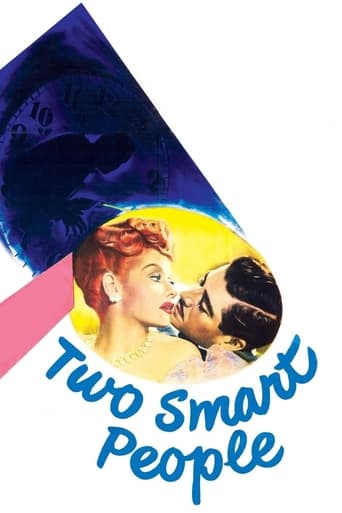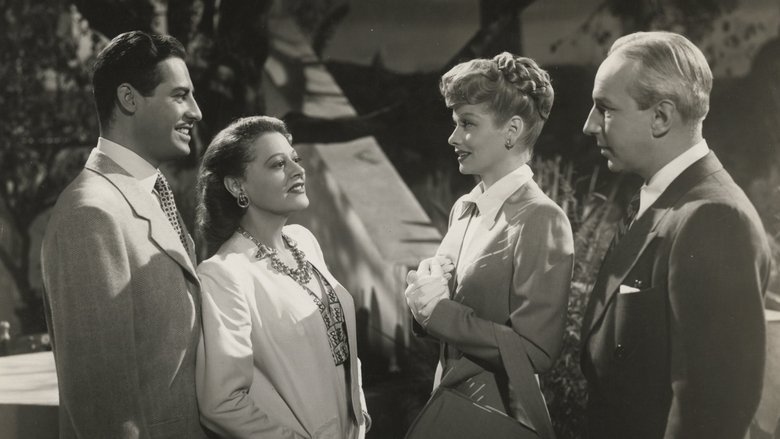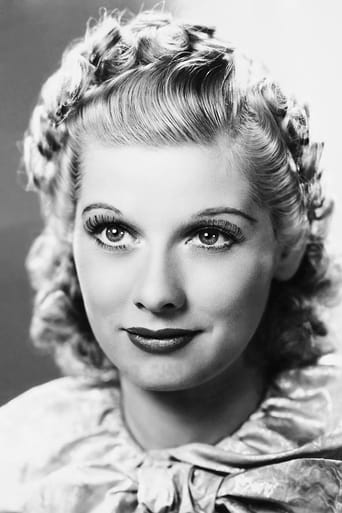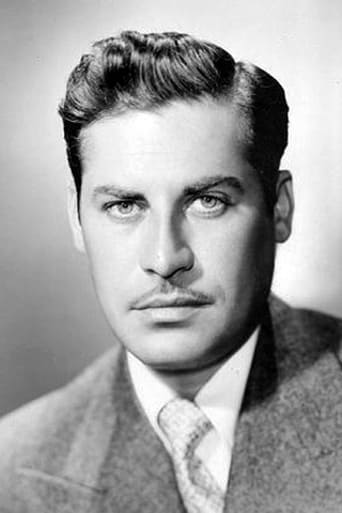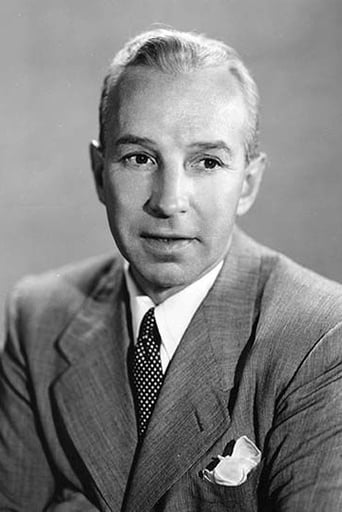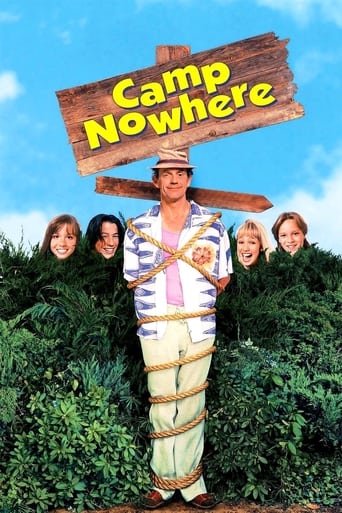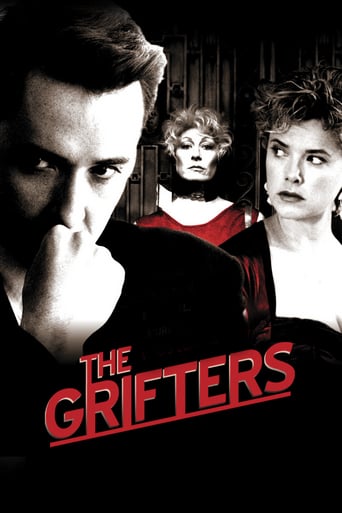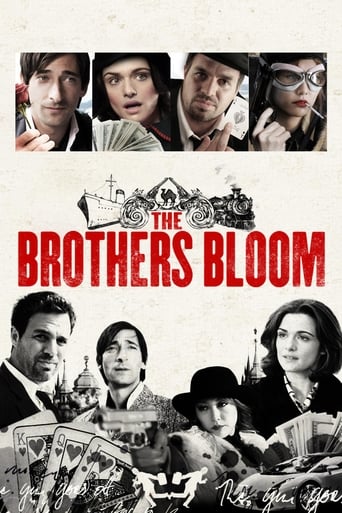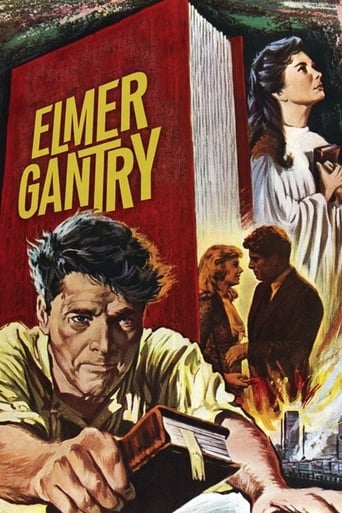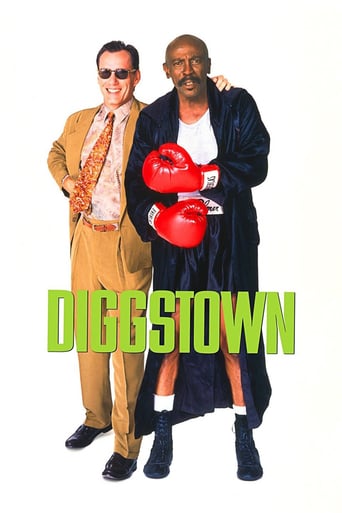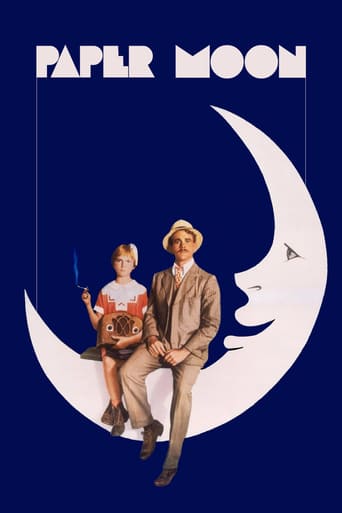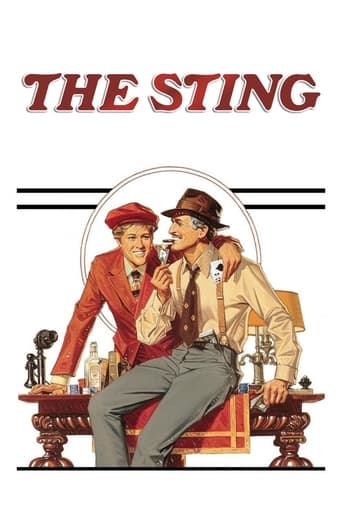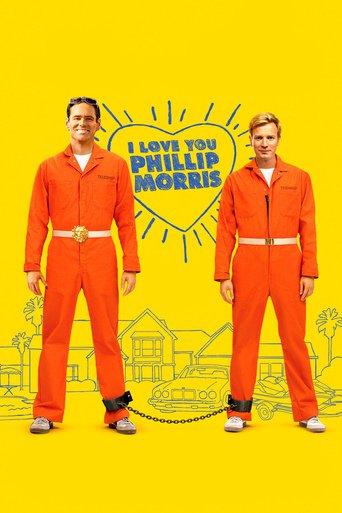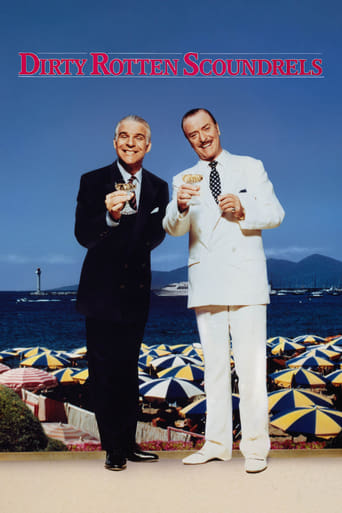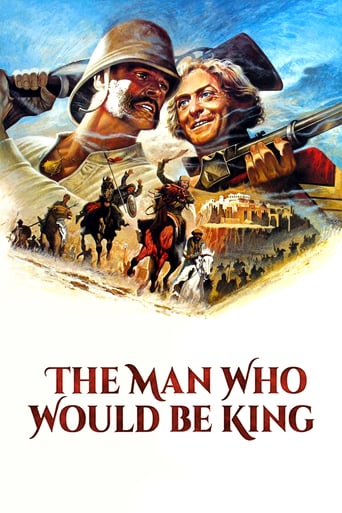Two Smart People (1946)
Con woman Ricki Woodner and detective Bob Simms follow a prison-bound swindler Ace Connors on his five-day gourmet binge.
Watch Trailer
Cast


Similar titles
Reviews
Thanks for the memories!
Just perfect...
At first rather annoying in its heavy emphasis on reenactments, this movie ultimately proves fascinating, simply because the complicated, highly dramatic tale it tells still almost defies belief.
One of the most extraordinary films you will see this year. Take that as you want.
I give this 8/10 because it was unexpectedly good, in particular in the romance department as Love overtakes two smart people. Watching it primarily for Ball, her expressive face gliding between smugness and dismay as Hodiak foils her neat fraudulent scheme with her first 'mark' to be seen, a greedy person with too much money and not enough sense. She is fun and later in the film, quite touching in her admission of the feelings of heretofore scorned emotion, love. Hodiak is also good, and the plot fairly simple: Hodiak is an 'honest' crook, willing to endure an assured short time in prison to be freed, later to enjoy his fraudulent bonds. I liked the Mardi Gras element and the fact that the train's milieu is pointed out in their little stumbles and cramped quarters. Lloyd Nolan, stolid cop, gets a taste of the high life but doesn't succumb to any more temptations, where in a darker film, he would have - also in a darker film, we would have shootings and stabbings and failed dreams and whatnot. I did not want to see a darker film so this one, which another reviewer has likened to a Lubitsch film, suited well.
Two Smart People (1946)An odd, charming, crime romance with a series of great locales and a real sense of love triumphs over everything. You might expect this from MGM somehow--it lacks the intensity we think of with Warner Bros. crime flicks--but it has more warmth and aura that critics give it credit for. And when it gets to the crazy Mardi Gras scenes, it's really pretty fun.The star here is Lucille Ball. Yes, the comic queen of the 1950s in a dramatic role, and she's convincing, despite the fact that she was unhappy to be in the film (she knew it was her last with MGM). Ball actually made a lot of films before television took her to the top, and she's always really good if never quite sizzling or memorable. She (and everyone) blames the weak script for her lackluster appearance here, but I thought the whole mood of the movie took on its own life and it worked well. The cinematography is led by legendary Karl Freund who later filmed 149 "I Love Lucy" episodes and who had already shot classic movies like "Metropolis," "Dracula," and would later do "Key Largo."Across from Ball in the romantic male lead is John Hodiak, who tries to light up the screen but seems to be slightly trying, as if he knows the kind of charming con man he is meant to be and can't quite "become" it. Still, he's likable, and his chemistry with Ball isn't bad. A third lead has to be mentioned, Lloyd Nolan, because he's the laid back cop who is the most at ease in the film, and who is used to bounce the romance off of.It's true, the script, both the dialog and plot, are routine stuff. But don't let that worry you. The ploy of the stolen bonds hidden in the book (seen in the first scene) is a little overdone as it goes (with a small twist in the final minutes), but it's really just a way to keep a slight suspense going. As the two leads fall for each other in the most impossible circumstance, there is the feeling that maybe the bonds are really the goal, and not true love. Great character actor Elisha Cook Jr. is creeping around in the background, waiting for the money to turn up.Like many post-war films, the filming here is intensely moody, sharp, and filled with moving camera. It's a pleasure just to watch. Director Jules Dassin has several truly great films to his credit, and this one is usually brushed off as a failure of sorts, but I wouldn't do that. I enjoyed every minute. Even when there were cracks in the plot, I still wanted to be there, to go along for the ride. And that's good enough!
Anyone coming to Jules Dassin's Two Smart People in expectation of the hard-core noir of his Brute Force, The Naked City, Thieves' Highway or Night and the City will have a surprise in store. Here, Dassin betrays his continental roots in fabricating a light if poignant romance between two con-artists. And though the movie has a noir veneer, it's less suggestive of Fritz Lang or Robert Siodmak than of Ernst Lubitch specifically the Lubitch of Trouble in Paradise, another elegant romance sparked between larcenous lovers. The pairing here is between Lucille Ball, on the lam from a job she pulled in Hot Springs, Arkansas, and John Hodiak, being escorted back from the west coast to finish a stint at Sing Sing by cop Lloyd Nolan. While trying to sabotage one another's swindles, Ball and Hodiak fall in love, and she joins him on his train journey to that castle on the Hudson. Also in play are half a million in bonds which are tucked away in a fancy cookbook (all ortolans and truffles) that Hodiak, a bit of a gourmet, keeps with him for bedside reading. And the wild card is nasty Elisha Cook, Jr., one of Ball's former partners in crime, who wants the bonds for himself.Dassin keeps a delicate balance between the intrigue and the romance, but the romance wins out (and who's complaining). Hodiak takes to the lighter, more debonair style with greater conviction than he does the harder-boiled roles he played in Somewhere in the Night and Desert Fury that same year. Ball, in a role that is neither too broad (like The Fuller Brush Girl or Miss Grant Takes Richmond) nor too melodramatic (like The Big Street), delivers a subtle and winning performance and she looks smashing.For his finale, Dassin whisks us to New Orleans during Mardi Gras, granting Cook a flamboyant exit. It's a gaudy set-piece crowded with costumed revelers that raises the spirits before they grow subdued at the surprisingly bittersweet ending. If Two Smart People can be counted as part of the noir cycle (and it often is), it's possibly its most effervescent title. If not, who cares? It remains an offbeat delight all its own.
For some reason the Maltin book looks for laughs in this film. It is not a comedy. I guess some folks were expecting comedy because of the presence of Lucille Ball. In actuality she plays a con woman who is on the lam from the law in Arkansas. She meets up with John Hodiak, a con man who has struck a deal with New York police authorities and who is being transported back to New York by Lloyd Nolan, a good cop who has become friendly with Hodiak. Nolan agrees to indulge in a fun filled train trip back to New York, which ultimately includes stops in places such as New Orleans (at Mardi Gras time). Hodiak tricks Nolan into entering Mexico, where he intends to remain, outside US jurisdiction. But, Nolan comes up with a neat way to get Hodiak back to the US. Naturally, Ms. Ball just happens to be on the same train and is with the two men at all stops along the way. There's an attempt at a love story between Hodiak and Ball which is pretty lame. Another big mistake was the casting of Elisha Cook Jr. as a former partner of Hodiak's who had been double crossed. He is supposed to be a menacing figure throughout the train trip and during the Mardi Gras scenes in New Orleans. But, there is no way that Cook, with his wimpy look, could ever appear to be a menace, even when he has a gun pointed at someone and tries to talk tough. Nolan, by far, does the best job in this movie. He is believable as a very nice cop who stays one step ahead of Hodiak's plots. As I said before, this movie is not a comedy. Unfortunately, it is also not a particularly good film.

